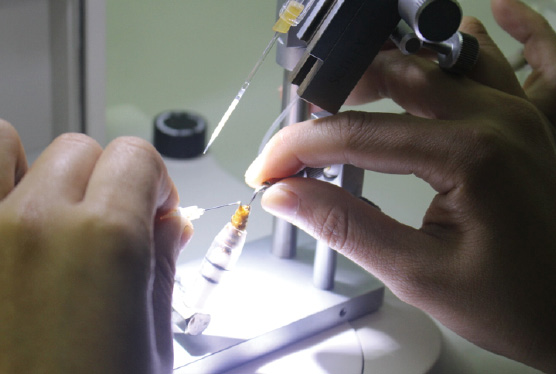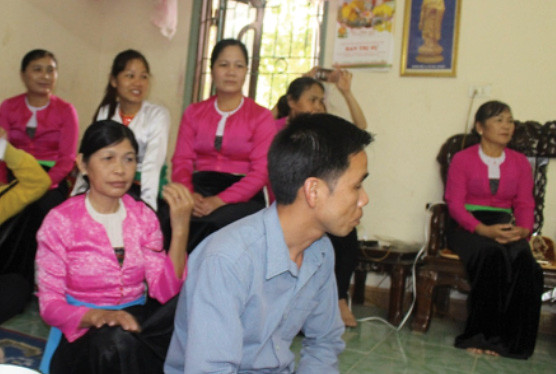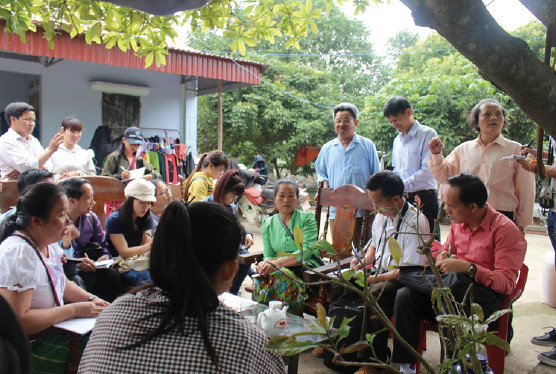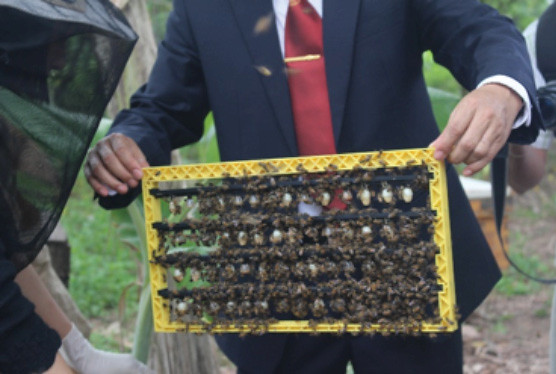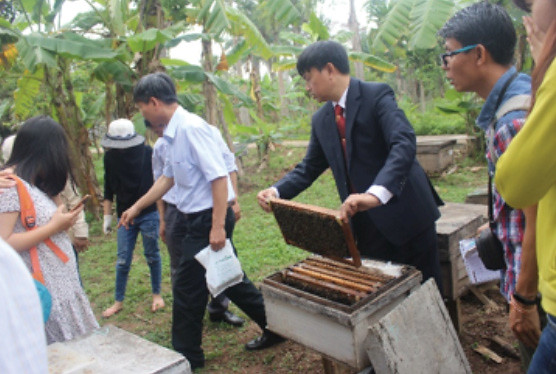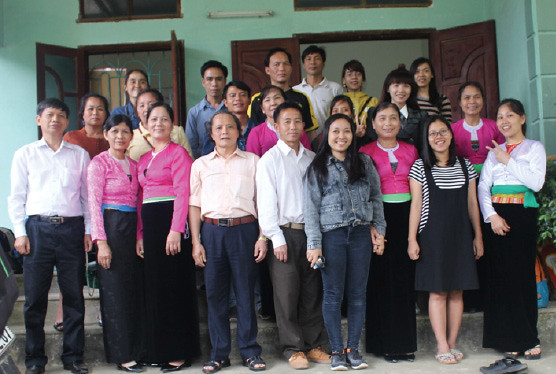HA NOI, Vietnam – For bees, the queen plays a crucial role in the cultivation of the colony. Due to the increasing threats on forest bees and their habitats, their populations are on a rapid decline. In Vietnam, bee experts have found a way to curb the downtrend using an instrumental insemination technology of the queen bee. While this is a breakthrough for our happy forest bee friends, this technology can also be of use to protect the livelihoods of many forest-dependent communities not just in Vietnam but the rest of the world.
Exchanging and sharing experience of beekeeping from Muong women people.
The Center for Biodiversity and Development (CBD), together with the Southern Insititute of Ecology (SIE), Non-Timber Forest Products–Exchange Programme (NTFP-EP) Vietnam and the Research Center for Tropical Bees and Beekeeping (RCTBB) organized a learning visit on managing forest honey resources for local ethnic women in Ha Noi, Vietnam in 3-7 April 2017.
Dr. Pham Hong Thai introduced the beekeeping model and research on queen – inseminated production.
The trip was a holistic immersion for the participants as they had the chance to visit the local bee farms in Bac Giang and Hoa Binh provinces and be introduced to the technical aspects of beekeeping from Dr. Pham Hong Thai and Dr. Nguyen Dang Toan of the RCTBB of Vietnam National University of Agriculture. Co-learning from their experiences, the participants were committed to put their newly gained knowledge into practice to continue empowering the queens: both of the bees and local communities’ strong women!

